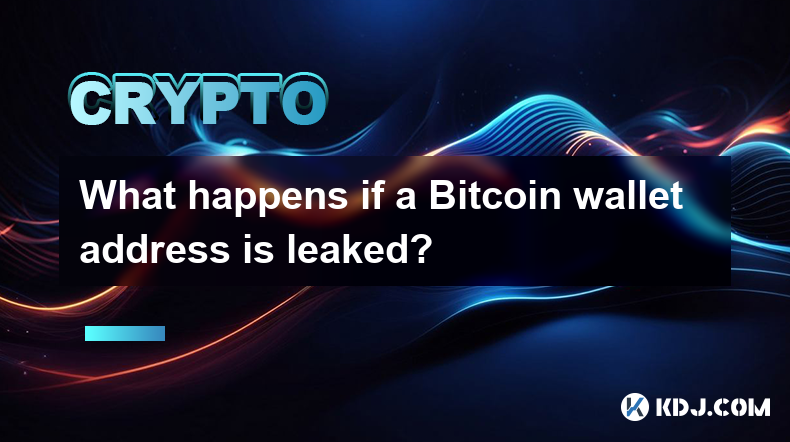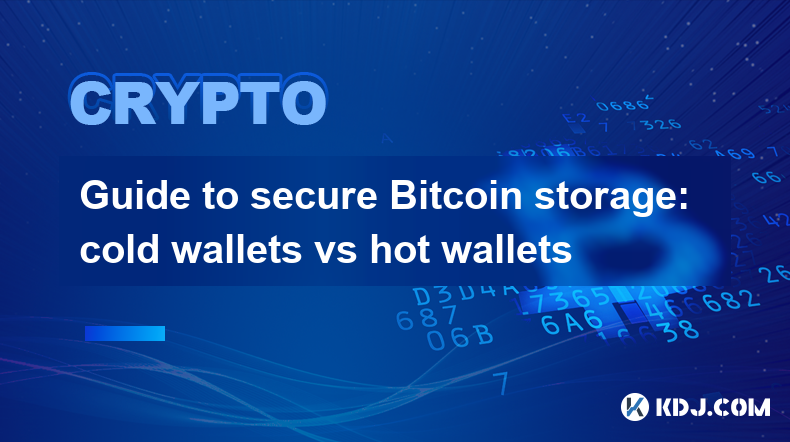-
 Bitcoin
Bitcoin $84,060.7791
-1.60% -
 Ethereum
Ethereum $1,584.0168
-2.82% -
 Tether USDt
Tether USDt $1.0000
0.00% -
 XRP
XRP $2.0861
-3.10% -
 BNB
BNB $578.8559
-1.57% -
 Solana
Solana $125.9396
-4.72% -
 USDC
USDC $1.0000
-0.01% -
 TRON
TRON $0.2539
2.65% -
 Dogecoin
Dogecoin $0.1532
-3.60% -
 Cardano
Cardano $0.6064
-4.76% -
 UNUS SED LEO
UNUS SED LEO $9.3924
-0.40% -
 Chainlink
Chainlink $12.1573
-3.47% -
 Avalanche
Avalanche $18.8825
-5.11% -
 Stellar
Stellar $0.2350
-2.46% -
 Toncoin
Toncoin $2.8620
-3.98% -
 Shiba Inu
Shiba Inu $0.0...01166
-2.35% -
 Sui
Sui $2.0863
-4.80% -
 Hedera
Hedera $0.1578
-4.35% -
 Bitcoin Cash
Bitcoin Cash $320.6979
-3.08% -
 Litecoin
Litecoin $75.0727
-2.75% -
 Polkadot
Polkadot $3.5242
-3.66% -
 Dai
Dai $1.0001
0.01% -
 Bitget Token
Bitget Token $4.3414
0.04% -
 Hyperliquid
Hyperliquid $15.2530
-4.56% -
 Ethena USDe
Ethena USDe $0.9992
0.01% -
 Pi
Pi $0.6141
-11.07% -
 Monero
Monero $219.9781
2.94% -
 Uniswap
Uniswap $5.1618
-3.81% -
 OKB
OKB $52.2768
-0.17% -
 Pepe
Pepe $0.0...07110
-2.72%
Bitcoin address generation guide
Bitcoin addresses are derived from private keys using elliptic curve cryptography and hashing; never share your private key to protect your funds.
Apr 05, 2025 at 09:15 pm

Understanding Bitcoin Addresses
A Bitcoin address is essentially your public key, a string of alphanumeric characters that allows others to send you Bitcoin. It's crucial to understand that you should never share your private key, as anyone with access to it can steal your funds. Think of your Bitcoin address like your bank account number – you give it out to receive payments, but you keep your bank card (private key) secure. Generating a new address is straightforward and recommended for enhanced security.
Generating a Bitcoin Address: The Underlying Process
Bitcoin addresses are derived from a complex cryptographic process. It begins with a private key, a randomly generated number. This private key is then used to generate a public key through an elliptic curve cryptographic algorithm. The public key is then hashed using specific cryptographic functions (SHA-256 and RIPEMD-160) to produce a 160-bit hash. This hash is then encoded using Base58Check, resulting in the familiar Bitcoin address you see. The Base58Check encoding adds error detection and ensures the address is valid.
Methods for Generating a Bitcoin Address
There are several ways to generate a Bitcoin address, ranging from using specialized software to utilizing online tools. However, it's vital to exercise caution when using online tools, as malicious websites could compromise your security. Always prioritize reputable sources and software.
Using a Bitcoin Wallet: This is the most common and recommended method. Most Bitcoin wallets (both software and hardware) automatically generate new addresses for each transaction. This enhances privacy and security.
Using a Bitcoin Address Generator (Online): Numerous websites offer Bitcoin address generators. However, proceed with extreme caution and only use trusted and well-reviewed sites. Never enter your private keys or seed phrases on such websites.
Using Command-Line Tools: For advanced users, command-line tools like
bitcoin-cli(part of the Bitcoin Core software) allow for address generation. This method requires a deeper understanding of Bitcoin's technical aspects.
Understanding Public and Private Keys
The core of Bitcoin security lies in the distinction between public and private keys. Your private key is a secret number that only you should know. It's essential for signing transactions and proving ownership of your Bitcoin. Your public key, on the other hand, is derived from your private key and is used to generate your Bitcoin address. It's safe to share your public key (Bitcoin address) as it cannot be used to access your funds. Losing your private key means losing access to your Bitcoin.
Security Best Practices for Bitcoin Addresses
Generating a new address for each transaction is highly recommended. This practice improves your privacy and limits the potential impact of a compromised address. Never reuse addresses, especially if you are dealing with large amounts of Bitcoin.
Use a reputable Bitcoin wallet: Choose a wallet with a strong reputation for security and privacy. Hardware wallets offer the highest level of security.
Secure your private keys: Store your private keys offline, in a safe place, and never share them with anyone.
Be wary of phishing scams: Be cautious of emails, websites, or messages that ask for your private keys or seed phrases.
Regularly back up your wallet: Losing your wallet access can mean losing your Bitcoin. Back up your seed phrase or private keys securely.
The Importance of Wallet Security
The security of your Bitcoin is directly tied to the security of your wallet. Choose a wallet that suits your technical skills and risk tolerance. Hardware wallets are generally considered the most secure option, as they store your private keys offline. Software wallets offer convenience but may be more vulnerable to hacking if not properly secured. Understanding the risks and taking appropriate security measures is crucial for protecting your Bitcoin.
Different Types of Bitcoin Addresses
Bitcoin uses different address formats, primarily identified by their prefixes. These prefixes indicate the type of address and the underlying cryptographic algorithm used. Understanding these differences is important for compatibility with different Bitcoin software and services. The most common types are P2PKH (Pay-to-Public-Key-Hash), P2SH (Pay-to-Script-Hash), and Bech32 (SegWit). While the specifics of these formats are complex, it's essential to ensure your wallet supports the types of addresses you're using.
Advanced Topics: HD Wallets and Seed Phrases
Hierarchical Deterministic (HD) wallets are a significant advancement in Bitcoin wallet technology. They generate multiple addresses from a single seed phrase, a mnemonic phrase that acts as the root of your private key hierarchy. This simplifies backup and recovery while providing a high level of security. Never share your seed phrase with anyone. It's the key to recovering your entire Bitcoin wallet.
Frequently Asked Questions
Q: Can I generate a Bitcoin address without a wallet?
A: While technically possible using command-line tools or online generators, it's strongly discouraged. Using a reputable wallet is significantly safer and easier.
Q: Is it safe to use online Bitcoin address generators?
A: No, it's generally unsafe. Malicious websites could steal your information. Use a reputable wallet instead.
Q: What should I do if I lose my private key?
A: If you lose your private key, you will likely lose access to your Bitcoin. This is why backing up your seed phrase or private keys is crucial.
Q: How many Bitcoin addresses can I generate?
A: You can generate as many Bitcoin addresses as you need, though most wallets automatically generate new addresses for each transaction.
Q: What is a seed phrase, and why is it important?
A: A seed phrase is a mnemonic phrase used to recover your entire wallet. It's crucial to keep it secure and backed up.
Q: Are all Bitcoin addresses the same?
A: No, different address formats exist (P2PKH, P2SH, Bech32), indicating different underlying cryptographic schemes. Modern wallets generally handle this automatically.
Q: Can I change my Bitcoin address?
A: You don't change your address; you generate a new address. Your old address remains valid. Generating a new address for each transaction is a best practice.
Q: What happens if I send Bitcoin to an incorrect address?
A: Bitcoin transactions are irreversible. If you send Bitcoin to an incorrect address, it is highly unlikely you will be able to recover them. Double-check addresses carefully before sending.
Disclaimer:info@kdj.com
The information provided is not trading advice. kdj.com does not assume any responsibility for any investments made based on the information provided in this article. Cryptocurrencies are highly volatile and it is highly recommended that you invest with caution after thorough research!
If you believe that the content used on this website infringes your copyright, please contact us immediately (info@kdj.com) and we will delete it promptly.
- 5 Altcoins That Will Explode This Week
- 2025-04-16 19:25:13
- Shiba Inu (SHIB) Remains the #2 Memecoin on CoinMarketCap, Trailing Only Dogecoin (DOGE)
- 2025-04-16 19:25:13
- 4 Cryptos Shaking Up the Markets and Giving Users Real Utility
- 2025-04-16 19:20:12
- Toobit Expands Its Services by Partnering with NovaMeme, a Cutting-Edge IDO-to-Market Decentralized Finance (DeFi) Fundraising Platform
- 2025-04-16 19:20:12
- Bitcoin (BTC), Pi Network's Pi Coin, and PepeX (PEPX) Are Experiencing a Rebound After US President Donald Trump's Tariff-Induced Market Plunge
- 2025-04-16 19:15:13
- 3 Under-the-Radar Cryptos That Could 10x or 100x
- 2025-04-16 19:15:13
Related knowledge

What happens if a Bitcoin wallet address is leaked?
Apr 16,2025 at 02:42pm
When a Bitcoin wallet address is leaked, the implications can be significant, depending on several factors. Understanding the potential risks and how to mitigate them is crucial for any Bitcoin user. This article delves into the various scenarios that can occur when a Bitcoin wallet address becomes public and offers guidance on how to protect your asset...

What are the latest ways to get Bitcoin for free?
Apr 16,2025 at 05:00pm
In the dynamic world of cryptocurrency, Bitcoin remains at the forefront, and many enthusiasts are constantly seeking ways to acquire it without spending money. While the allure of getting Bitcoin for free is strong, it's essential to approach these methods with caution and a clear understanding of the potential risks and rewards. This article will expl...

What is Bitcoin halving? Analysis of the impact on prices
Apr 09,2025 at 01:14pm
Bitcoin halving is a pivotal event in the cryptocurrency world that occurs approximately every four years, or every 210,000 blocks. The event is designed to reduce the rate at which new bitcoins are generated, thereby controlling inflation and increasing scarcity over time. During a halving, the reward that miners receive for successfully adding a block...

What to do if Bitcoin is stolen? Security protection and recovery possibilities
Apr 09,2025 at 03:42pm
If your Bitcoin is stolen, it can be a distressing experience, but there are steps you can take to protect your remaining assets and attempt to recover your lost funds. This article will guide you through the process of securing your Bitcoin and exploring recovery possibilities. Immediate Actions After Bitcoin TheftThe moment you realize your Bitcoin ha...

How to avoid Bitcoin investment scams? Common scams revealed
Apr 10,2025 at 05:14pm
Introduction to Bitcoin Investment ScamsBitcoin and other cryptocurrencies have become increasingly popular investment options, attracting both seasoned investors and newcomers alike. However, with the rise in popularity, there has also been a surge in Bitcoin investment scams. These scams can range from Ponzi schemes to fake exchanges and fraudulent in...

Guide to secure Bitcoin storage: cold wallets vs hot wallets
Apr 11,2025 at 08:42am
Guide to Secure Bitcoin Storage: Cold Wallets vs Hot Wallets When it comes to storing Bitcoin, security is paramount. The choice between cold wallets and hot wallets can significantly impact the safety of your digital assets. This guide delves into the differences between these two types of wallets, their respective advantages and disadvantages, and how...

What happens if a Bitcoin wallet address is leaked?
Apr 16,2025 at 02:42pm
When a Bitcoin wallet address is leaked, the implications can be significant, depending on several factors. Understanding the potential risks and how to mitigate them is crucial for any Bitcoin user. This article delves into the various scenarios that can occur when a Bitcoin wallet address becomes public and offers guidance on how to protect your asset...

What are the latest ways to get Bitcoin for free?
Apr 16,2025 at 05:00pm
In the dynamic world of cryptocurrency, Bitcoin remains at the forefront, and many enthusiasts are constantly seeking ways to acquire it without spending money. While the allure of getting Bitcoin for free is strong, it's essential to approach these methods with caution and a clear understanding of the potential risks and rewards. This article will expl...

What is Bitcoin halving? Analysis of the impact on prices
Apr 09,2025 at 01:14pm
Bitcoin halving is a pivotal event in the cryptocurrency world that occurs approximately every four years, or every 210,000 blocks. The event is designed to reduce the rate at which new bitcoins are generated, thereby controlling inflation and increasing scarcity over time. During a halving, the reward that miners receive for successfully adding a block...

What to do if Bitcoin is stolen? Security protection and recovery possibilities
Apr 09,2025 at 03:42pm
If your Bitcoin is stolen, it can be a distressing experience, but there are steps you can take to protect your remaining assets and attempt to recover your lost funds. This article will guide you through the process of securing your Bitcoin and exploring recovery possibilities. Immediate Actions After Bitcoin TheftThe moment you realize your Bitcoin ha...

How to avoid Bitcoin investment scams? Common scams revealed
Apr 10,2025 at 05:14pm
Introduction to Bitcoin Investment ScamsBitcoin and other cryptocurrencies have become increasingly popular investment options, attracting both seasoned investors and newcomers alike. However, with the rise in popularity, there has also been a surge in Bitcoin investment scams. These scams can range from Ponzi schemes to fake exchanges and fraudulent in...

Guide to secure Bitcoin storage: cold wallets vs hot wallets
Apr 11,2025 at 08:42am
Guide to Secure Bitcoin Storage: Cold Wallets vs Hot Wallets When it comes to storing Bitcoin, security is paramount. The choice between cold wallets and hot wallets can significantly impact the safety of your digital assets. This guide delves into the differences between these two types of wallets, their respective advantages and disadvantages, and how...
See all articles























































































